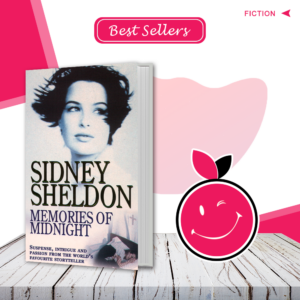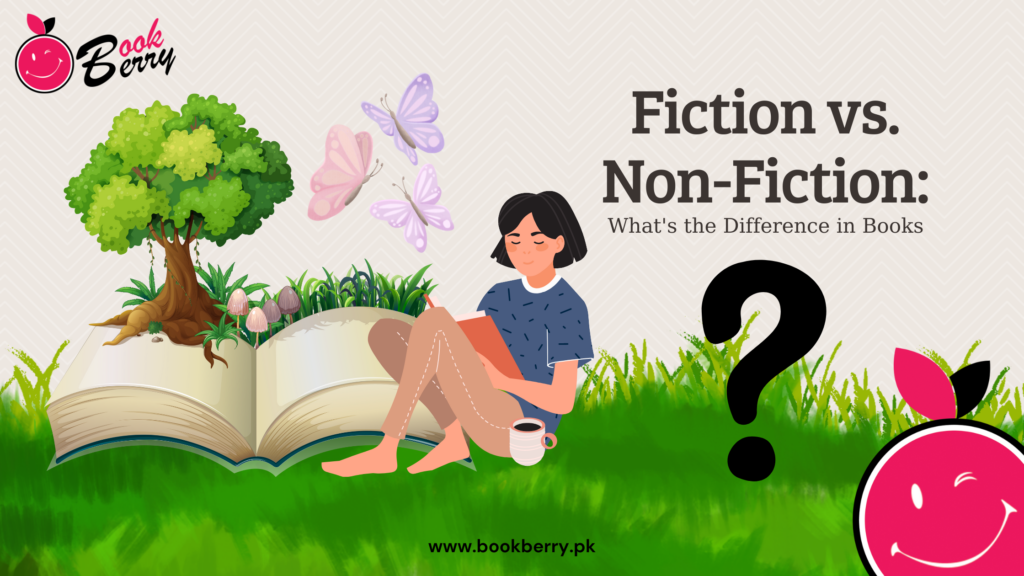Introduction: When we step into the world of literature, we encounter a rich tapestry of stories, ideas, and knowledge. Two broad categories that dominate this literary landscape are fiction and non-fiction. In this blog post, we will delve into the intriguing world of fiction and non-fiction books, exploring the defining characteristics that set them apart and the unique experiences they offer to readers.
Defining Fiction: Fiction is a genre of literature that invites readers into imaginative realms. These books are born from the creative minds of authors who spin tales of characters, settings, and events that exist solely in the realm of fantasy. Fiction novels often captivate readers with their storytelling prowess, invoking emotions and sparking the imagination. Classic examples of fiction include “To Kill a Mockingbird” by Harper Lee and “Pride and Prejudice” by Jane Austen.
Defining Non-Fiction: Non-fiction, on the other hand, is grounded in reality. These books are a reflection of the factual world, presenting information, analysis, and insights on a wide range of topics. Non-fiction literature encompasses autobiographies, biographies, history books, self-help guides, and educational texts. Notable non-fiction works include “The Diary of a Young Girl” by Anne Frank and “Sapiens: A Brief History of Humankind” by Yuval Noah Harari.
Narrative Style and Imagination in Fiction: One of the defining characteristics of fiction is its narrative style. Authors of fiction employ storytelling techniques to engage readers, weaving intricate plots, developing characters, and creating immersive worlds. Fiction is a playground of imagination, where the boundaries of reality are pushed, and readers are transported to places and times beyond their own.
Factual Information and Realism in Non-Fiction: Non-fiction, in contrast, adheres to a commitment to factual accuracy. These books rely on research, evidence, and real-life accounts to present information. Whether it’s a biography detailing the life of a historical figure or a scientific exploration of a complex subject, non-fiction aims to inform and educate, often drawing from the expertise of the author or subject matter experts.
Purpose and Audience: Fiction and non-fiction books serve different purposes and cater to distinct audiences. Fiction offers entertainment, emotional engagement, and the opportunity to escape into other worlds. It often targets a broad readership seeking enjoyment and literary exploration. Non-fiction, conversely, seeks to educate, inform, and provide insight. Its audience includes individuals seeking knowledge, personal development, or a deeper understanding of a particular subject.
Benefits of Reading Fiction: Reading fiction has been shown to enhance empathy, improve creativity, and boost cognitive skills. It allows readers to experience diverse perspectives, navigate complex emotions, and broaden their horizons through the eyes of fictional characters. Moreover, fiction can serve as a source of inspiration, offering solace and understanding in the face of life’s challenges.
Benefits of Reading Non-Fiction: Non-fiction reading offers practical knowledge, personal growth, and intellectual stimulation. It empowers readers with information that can be applied to their lives, whether it’s learning a new skill, gaining historical insights, or understanding the intricacies of human behavior. Non-fiction can be a catalyst for personal and societal change.
Blurring the Lines: Genre Crossovers: It’s worth noting that literature isn’t always neatly categorized into fiction and non-fiction. Some books challenge these boundaries, blending elements of both genres. Memoirs, for example, combine real-life experiences with narrative storytelling. These genre crossovers add complexity to our understanding of literature, illustrating that the lines between fiction and non-fiction can be fluid.
Conclusion: In the world of books, fiction and non-fiction stand as distinct pillars, each offering its unique treasures to readers. While fiction sparks the imagination and offers emotional resonance, non-fiction equips us with knowledge and practical insights. Exploring both genres broadens our intellectual horizons and enriches our lives. So, whether you find solace in the imaginary worlds of fiction or seek enlightenment in the facts of non-fiction, remember that the diverse landscape of literature has something for everyone.














